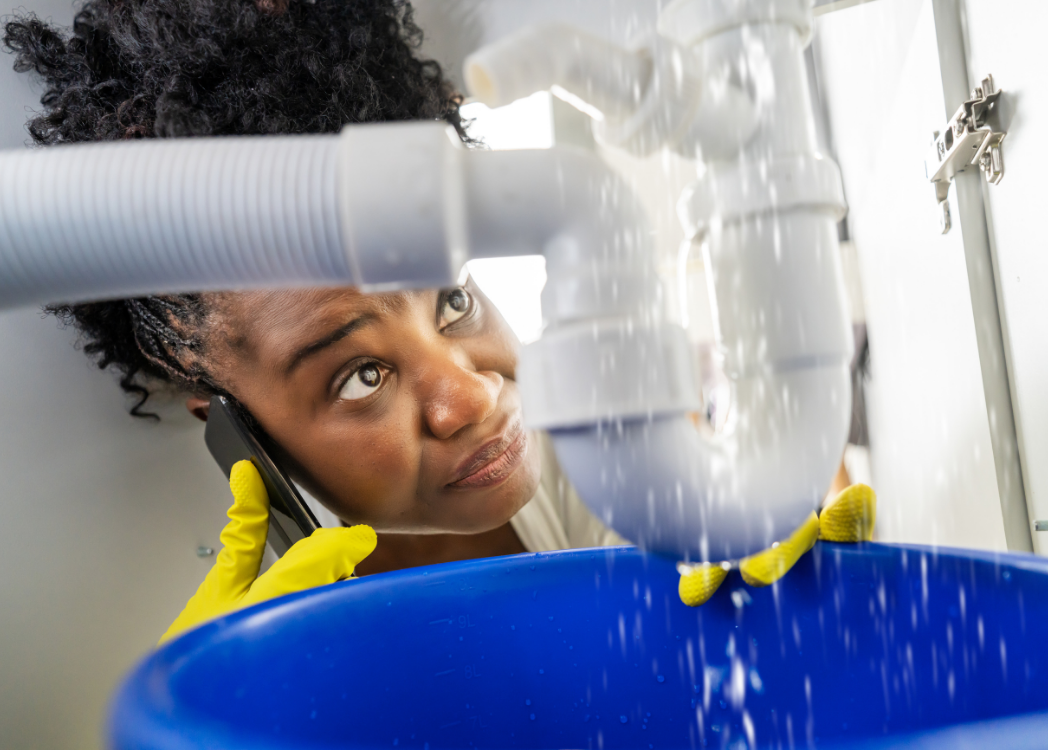What Does It Mean If My Garbage Disposal Is Leaking?
A little leak can mean a quick fix — or a total replacement. Learn how to spot the difference before your cabinet becomes a swimming pool.

Garbage disposals are one of those modern conveniences you never think about — until they stop working. A puddle under the sink, a smell you can’t shake, or a sudden drip during dish duty can turn a minor annoyance into a big question: Do I need a repair, or is it time for a replacement?
Leaks from disposals are common in Chicago-area homes. The good news: many are repairable. The bad news: some are not. Knowing where the leak comes from is step one in solving the mystery.
Common Leak Locations

- Top leaks: Often mean the sink flange — the part connecting the disposal to the sink — isn’t sealed properly. If the seal wears out or was installed poorly, water escapes here.
- Side leaks: Usually caused by loose connections with the drain pipe or dishwasher hose. These are often the easiest to fix.
- Bottom leaks: The dreaded scenario. When water leaks from the bottom, it usually means the motor or internal seals are failing. At that point, replacement is the only real solution.
Leaks often happen inside the cabinet at the drain pipe connection. Sometimes tightening solves it; other times corrosion has set in, and patching simply won’t work.
Repair vs. Replace
The first thing we check is corrosion or rust. If the casing or drain area is corroded, the finish isn’t doing its job, and a patch won’t hold. That’s when we recommend replacement.
But if the problem is just a loose gasket or hose? That’s a straightforward repair. The age of the unit matters too. Most disposals last 8–12 years depending on usage. If yours is nearing the end of that range, replacement may save you repeated headaches.
The DIY Factor

Some homeowners try duct tape, glue, or even plastic wrap “fixes” on disposal leaks. While creative, these are never permanent solutions. At best, they buy a day or two. At worst, they trap moisture and cause more damage.
Preventing Disposal Leaks
The easiest prevention? Be picky about what goes down the drain. Grease, potato peels, celery, and bones shorten the lifespan of a unit. A disposal is for scraps, not trash. A little mindfulness extends its life — and saves you from leaks.
👉 If you've noticed water under your sink and aren't sure if it's a simple repair or sign it's time for replacement, contact Handy Geeks for honest advice and safe solutions.
















